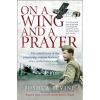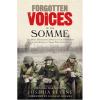Joshua Levine
Photograph: Cammie Toloui
Books
Books
Joshua Levine is an historian and author of bestselling history, including the Sunday Times and New York Times #1 bestseller, Dunkirk, the prize-winning history of the Troubles in Northern Ireland, Beauty & Atrocity, Operation Fortitude and The Secret History of the Blitz. Joshua practised as a barrister for several years before becoming an actor and a writer. His plays have been performed on the London stage and on BBC Radio 4, and he has scripted a television documentary about eighteenth-century London for BBC2. He was the primary researcher for the television productions Forgotten Voices Of The Great War and Forgotten Voices Of The Second World War.
Joshua regularly acts as an Historical Consultant on feature films and dramas. He is at work on a new book – The End of the Beginning, a new history of the North Africa campaign and the birth of the UK/US special relationship in the Second World War.
Forthcoming publication THE END OF THE BEGINNING - HarperCollins / Knopf
The North African Campaign was the real turning point of the Second World War. Before it, the Allies barely experienced a victory. After it, they barely experienced a defeat. In this hot and dusty cauldron, so much was learned. The British, out-thought and out-gunned by a superior enemy, suffered shocking setbacks while the United States, confident that its army would teach the world a lesson in modern warfare, was humiliatingly defeated as it entered the war in the west.
Yet both of these Allies turned their fortunes around. Under Montgomery’s guidance, the British would win a stunning victory over Rommel’s army, while the Americans, led by Patton, would seal the African victory. And in the process, a ‘special relationship’ between the United Kingdom and the United States would be forged.
On the surface at least…
Latest publication DUNKIRK: The History Behind the Major Motion Picture - William Collins - June 2017
THE EPIC TRUE STORY OF DUNKIRK - NOW A MAJOR MOTION PICTURE, WRITTEN AND DIRECTED BY CHRISTOPHER NOLAN AND STARRING KENNETH BRANAGH, TOM HARDY AND MARK RYLANCE.
In 1940, at the French port of Dunkirk, more than 300,000 trapped Allied troops were dramatically rescued from destruction at the hands of Nazi Germany by an extraordinary seaborne evacuation. The true history of the soldiers, sailors, airmen and civilians involved in the nine-day skirmish has passed into legend. Now, the story Winston Churchill described as a 'miracle' is narrated by bestselling author Joshua Levine in its full, sweeping context, including new interviews with veterans and survivors.
Told from the viewpoints of land, sea and air, Joshua Levine’s Dunkirk is a dramatic account of a defeat that paved the way to ultimate victory and preserved liberty for generations to come.
Praise for DUNKIRK: The History Behind the Major Motion Picture
'Not merely the essential companion to the film but probably the finest work we’ve seen on the evacuation full stop.' Waterstones Weekly
'Fascinating.' Sunday Times
'A first-class portrait of that traumatic and tragic time, conveyed largely through the worlds of those who experienced it.' Sunday Telegraph --This text refers to the Audio CD edition.
'This book, magnificently edited by Joshua Levine, is a great tribute to the extraordinary spirit of an army shattered in battle but determined not to surrender.'' Peter Snow, author of When Britain Burned the White House
Praise for THE SECRET HISTORY OF THE BLITZ
'A first-class portrait of [a] traumatic and tragic time, conveyed largely through the words of those who experienced it. Spiced with sexual and criminal statistics, Levine reveals a Britain of loose morals, opportunistic pilfering and cheating, and hedonistic pleasure, alongside the more familiar virtues of courage and community.' Telegraph
Praise for OPERATION FORTITUDE: The Story of the Spy Operation That Saved D-Day
'A vivid, moving story of the men who fought the Great War in the Air. Quite superb.' Max Arthur
'Those magnificent men in their flying machines recount in their own words just how mad and magnificent it was to be an air-ace in World War One. Joshua Levine's compilation is enthralling and breathtaking.' Chris Powling, Classic FM Guestlist
'This is a superior example of the genre from a writer at the top of his game.' Air Marshal Stuart Peach
'Levine’s compelling portrait of the Troubles and subsequent peace process ... is the sort of book that should be thrust into the hands of a minister arriving in Northern Ireland who needs to get a handle on how things have reached this point and where they might be heading next ... Levine’s background as an actor, barrister and historian makes him the ideal interlocutor in such conversations. The actor catches his interviewees moods, putting them at their ease and teasing out more than they seemed willing to reveal at the outset. The Lawyer draws out the implications of what they are saying, and the historian puts it all into perspective.' Liam Clarke, Sunday Times
'This superb book, based on a wide range of interviews, not only gives a clear explanation of how the peace process developed but also serves as a grisly reminder of the tribal violence, bigotry and hatred that so badly scarred Northern Ireland. As the author of several fine oral histories about the First and Second World Wars, Joshua Levine has a natural gift for narrative description. New, often vivid light is shed on so many of the dramatic episodes in the Troubles. This book is packed with insightful reminiscences from all sides.' Leo McKinstry, Daily Express
Praise for FORGOTTEN VOICES: DUNKIRK; THE SOMME; THE BLITZ AND THE BATTLE FOR BRITAIN
'Anyone who wishes to learn about human courage, and human endurance, should read this account. It is more powerful than any drama, more convincing than any fiction.' Peter Ackroyd
'This book, magnificently edited by Joshua Levine, is a great tribute to the extraordinary spirit of an army shattered in battle but determined not to surrender.' Peter Snow
'Dramatic, detailed, intimate and immediate.' Saga magazine
'The stories range from the humdrum to the heroic and all of them are full of pathos.' BBC Who Do You Think You Are Magazine
'Vividly and compellingly recalls a time when the nation stood as one.' Choice
'Terrifically moving stuff.' Dominic Sandbrook, Daily Telegraph
Non-Fiction
| Publication Details | Notes |
|---|---|
2010 Ebury | It could have been the biggest military disaster suffered by the British in the Second World War, but against all odds the British Army was successfully evacuated, and 'Dunkirk spirit' became synonymous with the strength of the British people in adversity. On the same day that Winston Churchill became Prime Minister, German troops invaded Holland, Luxembourg and Belgium. The eight-month period of calm that had existed since the declaration of war was over. But the defences constructed by the Allies in preparation failed to repel a German army with superior tactics. The British Expeditionary Force soon found themselves in an increasingly chaotic retreat. By the end of May 1940, over 400,000 Allied troops were trapped in and around the port of Dunkirk without shelter or supplies. Hitler's army was just ten miles away. On 26 May, the British Admiralty launched Operation Dynamo. This famous rescue mission sent every available vessel - from navy destroyers and troopships to pleasure cruisers and fishing boats - over the Channel to Dunkirk. Of the 850 'Little Ships' that sailed to Dunkirk, 235 were sunk by German aircraft or mines, but over this nine day period 338,000 British and French troops were safely evacuated. Drawing on the wealth of material from the Imperial War Museum Sound Archive, "Forgotten Voices of Dunkirk" presents in the words of both rescued and rescuers in an intimate and dramatic account of what Winston Churchill described as a 'miracle of deliverance'. |
2010 HARPER COLLINS | The Troubles of Ireland appear to be over; the future promises to be quite different from the past. But is this a realistic hope? A key element of this book will be interviews with men, women and children living in Northern Ireland today. Through organizations ranging from Feile an Phobail (a Catholic social and cultural association based in West Belfast), to the Ulster Political Research Group (a loyalist group with links to the paramilitary), the author will interview a wide range of people who can speak as to the genuine situation and the hopes and fears that exist away from the official line taken by those in power. These stories will interlink to provide a subtle and fascinating evaluation of Northern Ireland's future. |
2008 HarperCollins | Few are aware of the risks that the pioneering airmen of the First World War took. ON A WING AND A PRAYER is a narrative history that conveys the perils of those early days, the thrills of learning to fly, and the horrors of war in the air at a time when pilots carried little defensive armament and no parachutes. The men who joined the Royal Flying Corps in 1914 were the original heroes of flying, treading into unknown territory, and paving the way for later aerial combat. They became icons for the soldiers in the trenches, and a stark contrast to the hundreds on the ground fighting faceless hundreds as men fought aircraft to aircraft and man to man – for the first time the air became a battlefield of its own. |
2008 EBURY | With over a million casualties, the Somme was the most brutal battle of the First World War. It is a clash that even now, over 90 years later, remains seared into the national consciousness, conjuring up images of muddy trenches and young lives tragically wasted. Drawing on a wealth of material from the vast Imperial War Museum Sound Archive, FORGOTTEN VOICES OF THE SOMME presents an intimate, poignant, sometimes even bleakly funny insight into life on the front line: from the day-to-day struggle of extraordinary circumstances to the white heat of battle and the constant threat of injury or death. Featuring contributions from soldiers of differing backgrounds, ranks and roles, many of them previously unpublished, this is the definitive oral history of this unique and terrible conflict. |
2006 EBURY | Drawing material from the Imperial War Museum's extensive sound archive, Joshua Levine brings together voices from both sides of the Blitz and the Battle of Britain to give us a unique, complete and compelling picture of this turbulent time. We hear from the soldiers, airmen, fire-fighters, air-wardens and civilians, people in the air and on the ground, on both sides of the battle, giving us a thrilling account of Britain under siege. With first-hand testimonies from those involved in Dunkirk and the Battle of Britain, Black Saturday on 8 September 1940 when the Luftwaffe began the Blitz, to its climax on 10 May 1941, this will be the definitive oral history of a period when Britain came closer to being overwhelmed by the enemy than at any other time in history. |
2011 COLLINS | Operation Fortitude was the ingenious web of deception spun by the Allies to mislead the Nazis as to how and where the D-Day landings were to be mounted. The story of how this web was woven is one of intrigue, personal drama, ground-breaking techniques, internal resistance, and good fortune. It is a tale of double agents, black radio broadcasts, phantom armies, 'Ultra' decrypts, and dummy parachute drops. These diverse tactics were intended to come together to create a single narrative so compelling that it would convince Adolf Hitler of its authenticity. Operation Fortitude was intended to create the false impression that the Normandy landings were merely a feint to disguise a massive forthcoming invasion by this American force in the Pas de Calais. In other words, the success of D-Day – the beginning of the end of the Second World War – was made possible by the efforts of men and women who were not present on the Normandy beaches. Men such as Juan Pujol, a Spanish double-agent (code-name GARBO) who sent hundreds of wireless messages from London to Madrid in the build-up to D-Day relaying supposed intelligence from his fictitious spy network. This allowed the enemy to conclude that the number of Allied divisions preparing to invade was twice the actual number. Men such as R.V Jones, the head of British Scientific Intelligence, who masterminded the dropping of tinfoil confetti from the bomb-bay doors of Lancaster bombers, creating a false impression that a flotilla of Allied ships was heading in the opposite direction to the genuine invasion fleet. Using first hand sources from a wide range of archives, government documents, letters and memos Operation Fortitude builds a picture of what wartime Britain was like, as well as the immense pressure these men and women were working under and insure D-Day succeeded. |
2015 SIMON & SCHUSTER | 2015 is the 75th anniversary of the the Blitz of 1940-41. It is one of the most iconic periods in modern British history - and one of the most misunderstood. The 'Blitz spirit' is celebrated by some, whereas others dismiss it as a myth. Joshua Levine's thrilling biography rejects the tired arguments and reveals the human truth: the Blitz was a time of extremes of experience and behaviour. People were pulling together and helping strangers, but they were also breaking rules and exploiting each other. Life during wartime, the author reveals, was complex and messy and real. From the first page readers will discover a different story to the one they thought they knew - from the sacrifices made by ordinary people to a sudden surge in the popularity of nightclubs; from secret criminal trials at the Old Bailey to a Columbine-style murder in an Oxford college. There were new working opportunities for women and the appearance of unfamiliar cultures: whilst prayers were offered up in a south London mosque, Jamaican sailors were struggling to cross the country. Unlikely friendships were fostered and surprising sexualities explored - these years saw a boom in prostitution and even the emergence of a popular weekly magazine for fetishists. On the darker side, racketeers and spivs made money out of the chaos, and looters prowled the night to prey on bomb victims. From the lack of cheese to the increased suicide rate, this astonishing and entertaining book takes the true pulse of a 'blitzed nation'. And it shows how social change during this time led to political change - which in turn has built the Britain we know today. |







